CEDP is supporting private sector
The project is supporting reforms geared towards improving the competitiveness of Uganda by improving the business environment, lowering the cost of doing business and enhancing competitiveness.
Competitiveness and Enterprise Development Project (CEDP) is a five-year Government/ World Bank-funded project co-ordinated by the Private Sector Foundation Uganda (PSFU).
The project is supporting reforms geared towards improving the competitiveness of Uganda by improving the business environment, lowering the cost of doing business and enhancing competitiveness.
PSFU believes that through the reforms being undertaken in land administration and management; business registration and licensing, the interventions in the tourism sector and the Matching Grant Facility (MGF), the project will contribute to Uganda's competitiveness in the global market.
"We believe that creating a conducive business environment for Uganda through these reforms will enhance private sector growth, which will contribute to economic growth," says Gideon Badagawa, the executive director of PSFU.
CEDP has four components:
The Matching Grant Facility
The Matching Grant Facility, aims at improving the private sector enterprise capacity by facilitating beneficiaries' to access matching grants of up to 50%. This is envisaged to impact on productivity, income, sales and employment.
Business registration and licensing reform
In the Doing Business Report 2017, Uganda ranked 115 of the 190 economies that were surveyed.
According to Badagawa, some of the reasons for this ranking include poor performance in several important facets of the business environment, including getting the relevant permits to start a business, reliable power supplies and registering property. Others are getting construction permits and trading across borders; all of which significantly increase the cost of doing business and is a barrier to entering the Ugandan market."
This component aims at streamlining the burdensome process of business registration and licensing. "The objective is to reduce on the burden entrepreneurs go through when it comes to registering a business and licensing procedures by creating an online one-stop-shop for business registration and an e-registry for business licensing."
Implemented by Uganda Registration Services Bureau URSB), a number of activities have been implemented among which includes strengthening business registration institutions, establishment of an e-registry, streamlining the business registration and licensing processes as well as the planned construction of Uganda Business Facilitation Centre (UBFC), which will house a one-stop-centre for key government agencies.
Tourism competitiveness development
With a total contribution estimated at $1.4b, which represents 9.0% of the gross domestic product, tourism is one of the fastest growing sectors in terms of the potential to attract investments and create jobs. But despite the significance of the sector on the economy, Uganda is not realising the sector's full potential in terms of value creation and employment generation because of constraints related to policy and institutional framework deficiencies.
It is on this basis that CEDP is supporting the tourism sector by strengthening public and private sector partnerships to develop a competitive tourism offering. The component is implemented by the Ministry of Tourism, Wild Life and Antiquities, Uganda Tourism Board, Uganda Wild Life Authority and the Uganda Hotel and Tourism Training Institute.
"With the interventions that are being made in the sector, we hope that by the end of the project, there is an increased supply of quality trained workforce capable of delivering competitive hospitality and tourism services, increased awareness of Uganda's tourism offerings, improved and new tourism products in key destinations areas, as well as increased number of visitors that will stay and spend and finally a strengthened tourism value chain," says Badagawa.
Land administration and management reforms
Besides being a catalyst for the commercialisation of agriculture, good land policies are vital in facilitating flows from private investment, creating new jobs and stimulating mobility and structural change.
Badagawa says successful land administration reforms can improve the attractiveness of Uganda for investors, while at the same time protecting the land rights of local communities. As such, land administration reforms is one of the major components being implemented under the CEDP project. Of the $100m, over 50% of CEDP funds is going to reforms in land management and administration. This shows you the importance that government is attaching to this component," Badagawa says.
Implemented by the Ministry of Land Housing and Urban Development, the component is focusing on a number of areas among which is the improvement of land administration and undertaking systematic registration of communal and individually owned land.
Other areas of focus include implementing a programme of actions for strengthening institutions and mechanisms for land dispute resolution as well as strengthening land administration and management institutions.
Achievements so far
CEDP has registered a number of achievements among them includes the reduction in the number days taken to register a business. "Our initial target was five days from 33 in 2010, midway project implementation, we have already made significant progress. Currently, it takes only one day and in fact, if one comes with all the necessary documents, the process can even be completed in just four hours," Badagawa says.
He says there has also been a remarkable improvement in land administration and management, although there still remains a lot to be done, especially in governance issue. He says the reforms have resulted in efficiency and effectiveness gains that have translated in to a 300% increase in Non-Tax Revenue for government which was previously lost due to leakages that have since been sealed.
"Regarding Matching Grant Facility, we are getting good feedback from the beneficiaries in terms of improved performance, increased productivity, sales and income and in some instances new employment created," Badagawa says.
"Through support to the tourism sector, Uganda has been on the spotlight in key destination markets in North America, the German speaking Europe and the UK. The perception of travel to this country is changing, and as a result, we believe that in the next year or two, tourism arrivals will go up," he added
"Through our support to the tourism sector, Uganda has been on the spotlight in key destination markets in North America, the German speaking Europe and the UK. The perception of travel to this country is changing and as a result, we believe that in the next one year or two, tourism arrivals will go up," he added.
**********************
I no longer fear competition — beneficiary
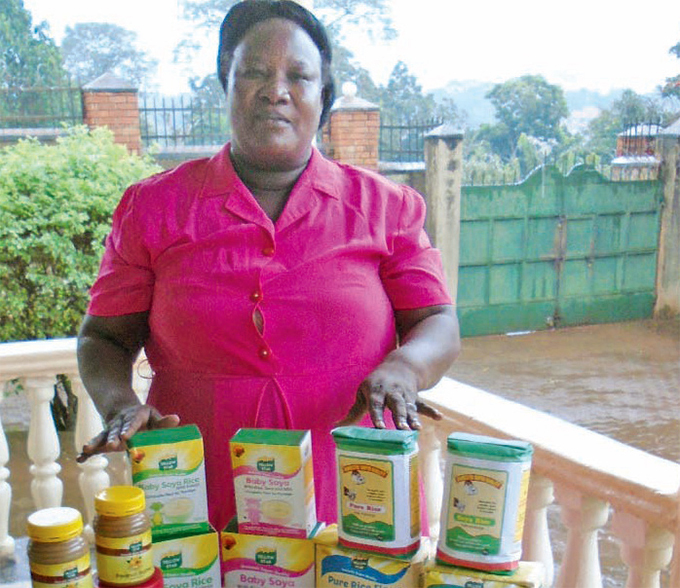 Florence Okot, founder of Yellow Star Foods
Florence Okot, founder of Yellow Star Foods
My name is Florence Okot, and I am the founder and managing director of Yellow Star Foods, a produce company that adds value to food crops. We produce fortified baby foods as well as that for adults in over 27 different food varieties and sizes.
I ventured into this business in 1997, with an aim of supplementing my salary, which had really become inadequate after one of my children developed a complicated illness and required a lot of money to treat them.
As always, the beginnings were not easy. I started with a capital of sh70,000, from which I bought 100kg of millet flour. And over the years, Yellow Star Foods has grown into one of the biggest food manufacturing companies. Our foods come in different varieties, notably, millet flour, rice, cassava, soya, peanut butter, among others.
I am a member of the Uganda Women Entreprenuers Association and one day, they invited us and briefed us about the Matching Grant Facility at the Private Sector Foundation Uganda. The Matching Grant Facility was offering business development services at half the cost to interested enterprises.
I could not miss out on this opportunity because I was keenly looking at the international market. The Uganda National Bureau of Standards had also come up with a policy that required all products to be certified, and I did not have a proper vision and mission.
I, therefore, applied for a grant to train in strategic plan, branding and certification. The grant was worth sh97m and after the training, we received a grant of sh42.7m.
Impact
A lot has been achieved ever since we implemented the three activities. The demand for our products has, for example, skyrocketed after rebranding.
Prior to rebranding, I was selling a little over 100kg of peanut butter every week, but currently, I sell 200kg every day.
Even the quality and taste of our products has greatly improved and this is because rebranding does not only look at packaging, but the entire product. We, therefore, did research on how to improve our products and we are implementing the outcome.
I am grateful for these grants. My business is doing extremely well. I no longer fear competition because I am armed with all that I need to compete favourably.
As told to Vision Reporter
**************************
MGF stimulating growth through enterprise support
The Matching Grant Facility (MGF) is one of the components under the Competitiveness and Enterprise Development Project (CEDP), which is directly implemented by the Private Sector Foundation Uganda (PSFU). The component is premised on firm level and sector specific interventions.
MGF focuses on seven, mostly non-traditional export sub-sectors, and these are ICT, tourism, fisheries and agribusiness - which includes, coffee, horticulture, edible oils, grains and pulses.
According to Daniel Kisekka, the MGF grants manager at CEDP, the seven sub-sectors are believed to be the major drivers of the economy and, if given the necessary attention, there can be impact in terms of enhancing productivity, boosting exports, sales and creating employment.
"We, therefore, look at enterprises or organisations that fall in the selected sectors and must not be start-ups. An enterprise must have been in operation for at least two years and must be formally registered," Kisekka says.
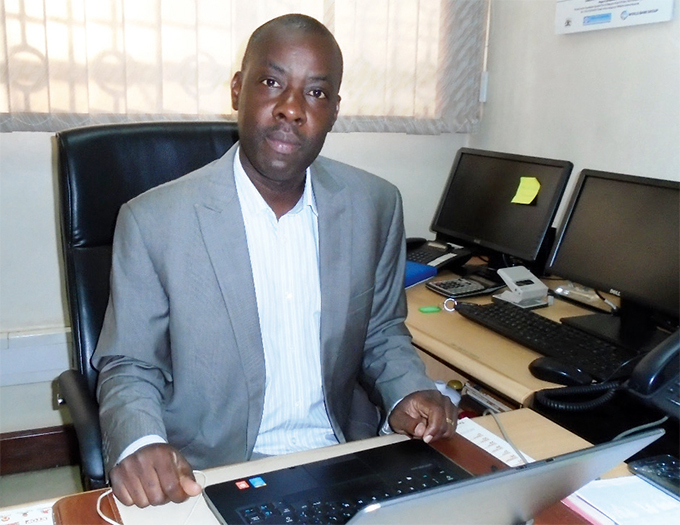 Daniel Kisekka, manager, Matching Grant Facility
Daniel Kisekka, manager, Matching Grant Facility
The facility seeks to alleviate some of the firm level constraints to growth. Its aim is not about resolving their financial needs, but rather offering business development services (BDS) at half the cost. The BDS are believed to not only be critical in ensuring success for enterprises, but are also vital, in making enterprises productive and competitive.
BDS are non-financial services that improve the performance of a firm or an enterprise. They include, among others, management training and advisory, acquisition of quality certification systems, business plan development, marketing and advertising, record-keeping, financial management, technology improvement, feasibility studies and business process outsourcing.
"A number of businesses may work haphazardly, but when it comes to, for example, acquiring a bank loan, a business plan comes in handy and this, amongst other is what MGF is offering, equipping enterprises with skills that will enable firms to move to another level," Kisekka says.
MGF ensures that eligible enterprises supported to acquire BDS are making interventions along the entire value chain. Take the example of the coffee sub-sector, where, we support those dealing in inputs, production, processing, value addition, marketing and so forth.
Criteria for getting a grant
Grants follow a call for proposal cycle, where eligible entities are invited to submit proposals for funding through publications in the media and on the MGF website.
There is a criteria that is considered before a company qualifies for a grant. These include, among others, proof of registration of the business, draft contract with the service providers, details of the physical business address or location, supporting documents related to the planned activity and proof of availability of funds to implement the planned activity.
"We are also interested in knowing the duration of the planned activity and the deliverables. We want to support an activity that will contribute to both our objectives and that of the entity, including enhancing productivity, increased exports, income and employment in some cases. Enterprises also need to tell us what they expect to get from that intervention, as well as the budget to undertake that activity, because it is from this budget that we base our cost-sharing decision," says Kisekka.
When a company qualifies for a grant, a contract between the enterprise and CEDP is signed, committing to each other in terms of funds that is supposed to be reimbursed.
Size of the grant
Eligible enterprises may access a maximum of $100,000 (sh155m) cumulatively, over the life span of the project, subject to availability of funding This means a company can be supported for as many times as long as it has not reached the maximum $100,000 threshold.
"We can support a company up to about ten times in the entire project implementation duration because it is rare for a company to request for a maximum of $100,000 in one go.
"For the majority, their utilisation is between $6,000 to $10,000. But also worth noting is that a company cannot be supported twice for the same activity as each grant has to be for a different activity," Kisekka explains.
Challenges
One of the challenges is that some people perceive these grants to be ‘free money' and anything that entices the word free becomes a target to unscrupulous people trying to see that they beat the system. We, however, have a tight system and we have had incidents of blacklisting enterprises who were trying to compromise the system.
Despite our efforts in providing grants for BDS, a large number of SMEs are still constrained because they lack working capital, machinery or the technology to take them to another level. There are a number of enterprises that have wholly embraced all the levels of BDS, but still face financing challenges that make it hard for them to progress as they would have wanted.
These are some of the areas that may need attention in future interventions targeting SMEs.
 Star Cafe is a beneficiary of MGF
Star Cafe is a beneficiary of MGF
MGF at a glance
Four rounds of calls for proposals
418 enterprises accessed funding out of the targeted 500
204 enterprises received reimbursements to date
287,081 direct project beneficiaries
$3,532, 897 worth total commitments
$1,313,390 reimbursement value as at June 2017
51% of beneficiaries are female
329 new jobs created by supported MSMEs
3% increase in sales from supported MSMEs
2% increase in exports from supported MSMEs
Achievements
Majority of enterprises supported have attained the MGF objective in regard to increased productivity, sales, income exports, and employment. One of the examples is Star Café, which was supported mostly in branding to increase visibility and as a result, their products are doing well on the market.
Others include National Union of Coffee Agribusiness and Farm Enterprises (NUCAFE), a coffee advocacy group. They got a grant to install a modern coffee processing factory in Namanve, Wakiso and as a result, they are now past advocacy for the coffee farmers to value-addition and immense impact has been felt right from the household level to association level.
Farmers now have a ready market for their produce and they are getting a premium pay. The organisation is undertaking market trials in South Korea with consignments of branded coffee delivered to the country.
MGF has also supported a number of tourism enterprises to exhibit in different trade fairs across the globe, thus promoting Uganda as a tourism destination. This will increase on the number of visitors to the country and its related benefits along the value chain.
"In ICT, we have supported companies such as Airsave Company and Informania to develop packages that have been exhibited internationally and many of these companies have been able to receive international acclaim which has made them competitive.
There is documented evidence from many of these beneficiaries that such interventions from the Matching Grant Facility have made massive impact on their businesses," says Daniel Kisekka, the MGF grants manager.
**********************
Star Cafe is a beneficiary of MGF
Uganda Fish Processors and Exporters Association (UFPEA) was established in 1993 to promote the fish export sector. At the time, fish export was a new sector that had just been introduced.
The economy was being diversified from the traditional exports such as coffee and cotton to non-traditional exports such as fish. This diversification of the economy attracted a number of fish exporting companies, with many of them located along the shores of Lake Victoria. The companies were employing more than 32,000, of which 90% were Ugandan.
The exporters association mostly deals in the Nile perch, a fresh water fish that cannot be found in the marines with the markets mostly in the European Union which takes about 80% of the market share. Others include the Middle East, China, South Korea and the US.
Sector growth
The fish industry kept on growing and by 2005, the sector had attracted up to 21 fish processing and exporting companies.
"In 2005, we exported 36,000 metric tonnes of fish, earning us $143m," says Ovia Matovu Katiti, UFPEA's executive director.
Things, however, took a bad turn with the industry recording a decline in fish exports year after year. This, according to Katiti, was because of the open access to the lake without restrictions.
This soon became a problem, with the fishermen using illegal gear to catch immature fish and as a result, for the last 10 or so years, there has been a tremendous decline in fish stocks.
Currently, of the 21 companies that existed in 2005, only six are still operational, with the rest having closed shop. Worse still, the European Union, one of our major fish export destination, demanded compliance with its regulations on sustainable fisheries exploitation or risk losing their lucrative market.
Self-policing
To avert the problems, UFPEA has been trying to do self-policing so that they are not seen as culprits in the massive illegality of immature fishing.
The group started by coming up with self-monitoring and control programme among members before developing inspection guidelines. "We went on to appoint a private special inspection team that would come to the factory to find out whether the fish being processed is of the legally recommended size. Katiti says the recommended size should be 50cm long and anything below that is immature.
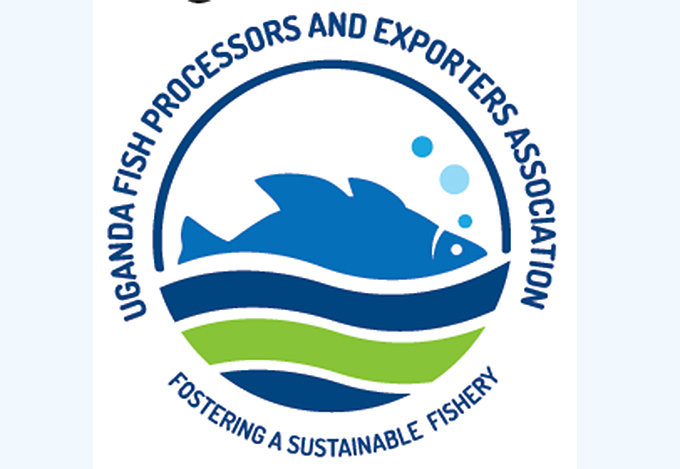
The grant
To enhance the self-monitoring programme, the association got a grant from the Matching Grant Facility. The group used the grant to recruit, appoint and sign a contract with the Uganda Organic Certification (UgoCert) Limited, an accredited certification company that promotes sustainable agriculture and environmentally-friendly production systems for sustainable livelihoods.
In the contract, UgoCert was to inspect and check members to ensure that what they are doing has in line with the proper principles of resource management.
UgoCert carried out a number of activities, which included the inspection and certification of factories, review and improvement of on the self-monitoring and sustainability programme, training of internal fish inspectors and lastly, design and develop a sustainability mark to be imprinted on the packaging materials of all the companies fulfilling the principles of resource management.
Katiti says the grant has played a part in promoting sustainable fishing.
**********************************
Quality certification gave my sales a boost — Nakayenga
In 2010, Regina Nakayenga, then a lecturer at Kyambogo University, attended a workshop on value-addition for crops and fruits organised by the Catholic Women Guild at Kireka Catholic sub-parish.
During the training, she realised that the women of Kireka, who are surrounded by several food markets, can make a living from fruits, especially during the season of plenty. The training introduced them to making juice and wine from pineapples, passion fruits, oranges and mangoes.
Two weeks after the training, Nakayenga made her first jerrycan of wine and a month later, she went to the village and found her passion fruit garden ready for harvesting. Because she had the raw materials, she decided to also produce passion fruit concentrates.
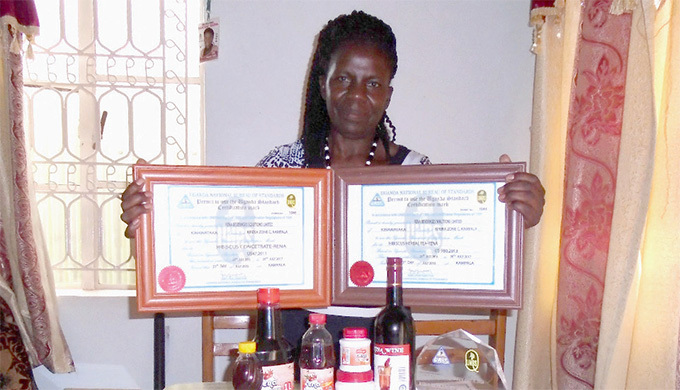 With the grant, Nakayenga was able to get UNBS quality mark for her products
With the grant, Nakayenga was able to get UNBS quality mark for her products
To perfect her art, she sought further knowledge in processing juice and wine by attending training at the Uganda Industrial Research Institute and Makerere University Food Science and Technology department.
"My family saw the venture as a viable project and we embraced it. In January 2012, we got the company's memorandum and articles of association, registered the company and business started booming," she says.
In 2014, Nakayenga applied for UNBS certification for her products. Here, she got a standard mark for three products — tea, passion fruit concentrate and wine. This boosted the sales, after customers developed confidence in her products.
"In 2015, we decided to upgrade our status to reach further markets by getting a quality mark and around the same time, Private Sector Foundation Uganda advertised the Matching Grant Facility. We applied for a grant for quality certification."
"However, hibiscus being a new product on the Ugandan market, we had three activities to carry out to ensure its viability. One was to justify that hibiscus had market in Uganda. We conducted a market study on hibiscus beverages and also developed a marketing strategy. The third was getting the quality certifications. It was, therefore, a three-fold activity supported by the Matching Grant Facility."
"We raised the 100% funding for the activities and when we accomplished the activities and got the certificate, we submitted our report and we were given the 50%. In the same year, due to our dedication, diligence and commitment in the agroprocessing practices and principles, UNBS awarded us with the runner-up champion award in upholding standards," Nakiyenga says.
Impact of the grant
"There has been a steady adherence to internal systems and controls by staff. This is because the process enabled us to internalise most practices and the staff are keen and sensitive about the good manufacturing processes," Nakayenga says.
"We now have the potential to sell to all kinds of customers," she says.
The grant also opened more opportunities. Rena Beverages, for example, won another grant to improve on their packaging. They also recently got an investment licence from the Uganda Investment Authority and this was because of the good track record.
"I, therefore, encourage people to work diligently in whatever they are doing because luck comes to those who are prepared. Look out for opportunities like the Matching Grant Facility and have the confidence to apply," Nakayenga concludes.
*******************************
Axess app has simplified transactions
DMark Company is a telecommunication value added software company that aggregates SMS, Unstructured Supplementary Servcies Data and voice across different telecom companies in Uganda, Kenya, South Sudan, Burundi and the DR Congo.
"We are a premium value- added service content provider that provides sms info to telecommunications subscribers in Uganda," DMark mobile's chief executive, Robert Ssemakula, says.
The company provides a range of services, which includes product design and implementation, sales and marketing, advertising, events support, customer service, marketing research and training.
What is Axess?
Over the years, however, DMark has been transforming into a financial technology company and it is on this background that the company worked with the Competitiveness and Enterprise Development Project through the Matching Grant Facility to create a new Fintech application called Axess.
 Robert Ssemakula
Robert Ssemakula Axess is a new solution that helps SACCOS and investment clubs grow faster by enabling members to borrow or deposit using mobile phones.
Cash transactions
The application helps SACCOS to transact via mobile money.
With the Axess app, a SACCO member can get a loan within minutes on mobile and pay back or deposit savings via mobile phone any time.
In return, the SACCOS saving schemes will pay DMark a service fee. Ssemakula says with the Axess app, transactions not only become more convenient, but SACCOS members get value for money.
"The money and time lost in transport to the SACCO offices to deposit or borrow is saved. And even then, research shows that more people are likely to save whenever the process of saving is convenient," Ssemakula explains.
According to Ssemakula, commercial banks regularly purchase software to improve their record-keeping and transact easily.
Unfortunately, many SACCOS, and investment clubs cannot afford this kind of software. However, because MGF subsidised the cost of developing investment clubs and other savings, DMark is freely giving and installing the software to all the interested SACCOS, investment clubs, other savings and internal lending communities.
Financial literacy
Aside from the app, Dmark has developed a financial literacy course which they are giving out freely to all the members of SACCOS that are using Axess software.
"We developed a one-minute video on financial literacy, which we send once in a week for two years to all members who are using the Axess technology. It is informative and teaches users about saving, among other simple applicable things. The videos are in eight languages," Ssemakula says.
So far, DMark has reached over 10,000 users and is looking at reaching 100,000 users by June next year.
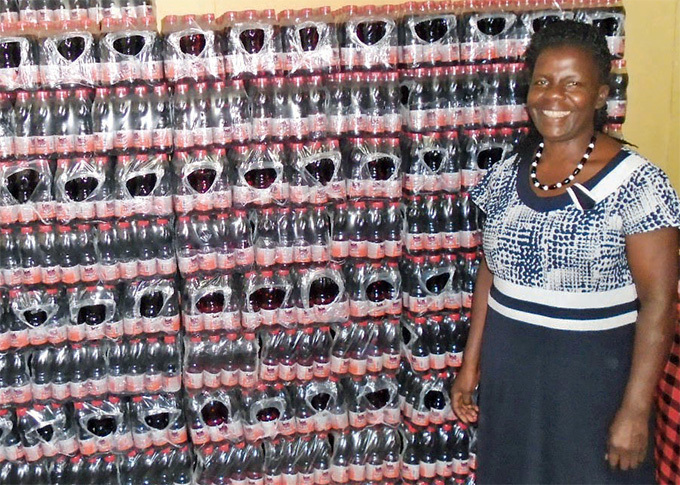 After acquiring the Quality mark, the demand for Nakayenga's products increased
After acquiring the Quality mark, the demand for Nakayenga's products increased
The Axess app is expected to come with multiple benefits. Due to the convenience and speed of mobile transactions, there will be more loans and faster deposits.
There will also be easier collections of loan repayments and member contributions and SACCOS will make more profits from increased members' transactions.
"We are grateful to the Matching Grant Facility for subsidising on the cost of developing the Axess application. Without this grant, there are higher chances that the app would still be in its initial stages. And upon completion, I am sure it would have cost a lot of money, leaving out many SACCOS that would not have afforded the fee," Ssemakula says.